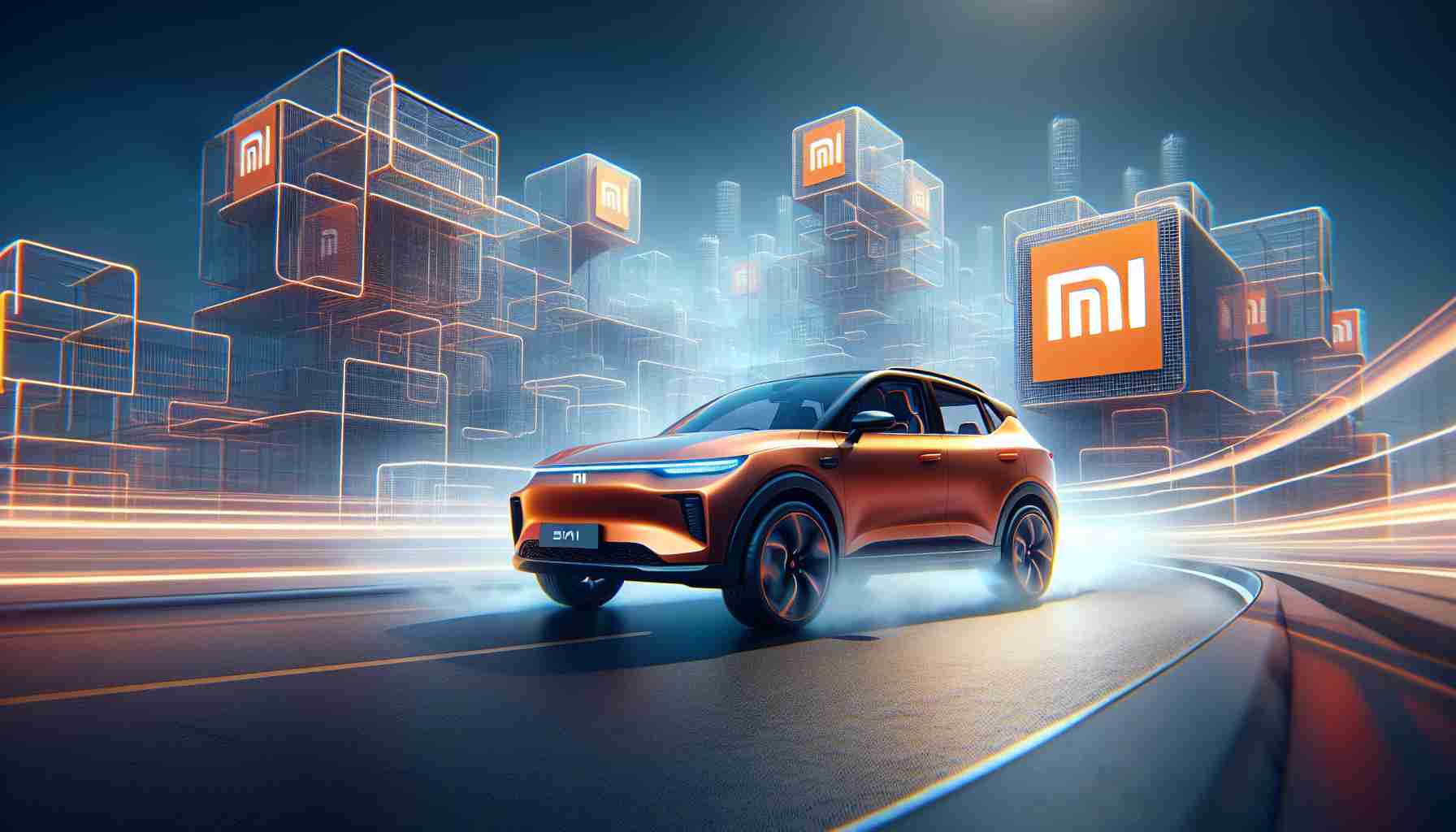The Evolution of Xiaomi’s Electric Fleet
Following the resounding success of the SU7 sedan, Xiaomi, a tech titan known for its smartphones, is extending its electric vehicle fleet with a new contender. Amidst a burst of accolades and an order blitz for the SU7, with over 50,000 orders rapidly placed, Xiaomi’s automotive division is not resting on its laurels.
In less than five weeks since its debut, the SU7 reached an assembly milestone with 10,000 units produced, setting the pace for a projected 100,000 vehicles to be delivered within its first year. The electric sedan wowed consumers with its advanced infotainment system, including a 16.1-inch 3K display and a vast 56-inch head-up display, tailored to harmonize with Xiaomi’s suite of devices. Reveling in the success of the SU7, Xiaomi aims even higher with its next electric venture.
Xiaomi’s Bold New Expedition: A Compact Electric SUV
A compact SUV is the latest gem in development at Xiaomi, expected to join its electric lineup and poised to challenge competitors like the Tesla Model Y. While full details on its specifications remain under wraps, anticipations are high that it will incorporate the innovative infotainment and connectivity features that characterized the SU7.
Xiaomi’s electric vision doesn’t stop there; the company plots to bolster its manufacturing capabilities to meet growing demands. Plans to expand its operational capacity suggest that Xiaomi’s production could eventually soar to 300,000 vehicles annually. As the company gears up for a 2025 release of this new model, it marches confidently towards a greener, tech-integrated automotive future.
Key Questions and Answers:
1. What is the significance of Xiaomi’s entry into the electric vehicle (EV) market?
– Xiaomi’s entry marks a significant diversification for the company, which is primarily known for consumer electronics. It illustrates the growing trend of tech companies entering the automotive sector, attracted by the potential of EVs and the shift towards smart, connected transportation.
2. How does Xiaomi’s SU7’s success impact its EV strategy?
– The successful launch of the SU7 sedan likely bolsters Xiaomi’s confidence in further investing in the EV market, proving there is customer interest and a viable market for its vehicles.
3. What challenges might Xiaomi face in the electric vehicle market?
– Key challenges include the intense competition with established automotive brands, the need to continuously innovate in technology and design, creating a reliable EV charging network, ensuring supply chain stability, and navigating evolving regulatory landscapes concerning EVs.
Advantages:
– Xiaomi’s existing brand reputation and loyal customer base from their consumer electronics arm may facilitate a positive reception of their EVs.
– The company’s experience in technology could lead to innovative features and integration with other smart devices.
– Xiaomi’s move into EVs aligns with global trends towards sustainability and could help reduce carbon emissions.
Disadvantages:
– The competition from established automakers and EV-specific startups is fierce, and Xiaomi must carve out a niche within this space.
– Automobile manufacturing requires significant capital investment, and any production or quality issues could damage the reputation Xiaomi has built in other markets.
– Transitioning from consumer electronics to the complex logistics and regulatory compliance of automobile manufacturing represents a substantial challenge.
Controversies or Challenges:
– As with any rapidly ascending player in the EV market, Xiaomi may face scrutiny regarding the sustainability of its supply chains, specifically the sourcing of materials like lithium and cobalt for batteries.
– Quality concerns and customer satisfaction issues, as has been faced by several new entrants to the electric vehicle market, could also be a potential controversy.
Suggested related link:
– Official Xiaomi Website
Further Considerations:
It is worth noting that Xiaomi is joining an industry that is in the process of significant transformation with the rise of autonomous driving, car sharing, electrification, and increased connectivity. Xiaomi’s background in smart technology and AI could provide a competitive edge in these areas.
The long-term performance of Xiaomi’s electric vehicles in terms of reliability, safety, and customer satisfaction will be pivotal for the company’s reputation in the automotive market. Moreover, how Xiaomi navigates partnerships and collaborations with traditional automakers and tech companies could shape its success and influence in the industry.
Finally, as government policies worldwide typically favor the adoption of electric vehicles through subsidies and tax breaks, Xiaomi’s timing could be advantageous, but it will also need to adapt to changing policies and incentives over time.
